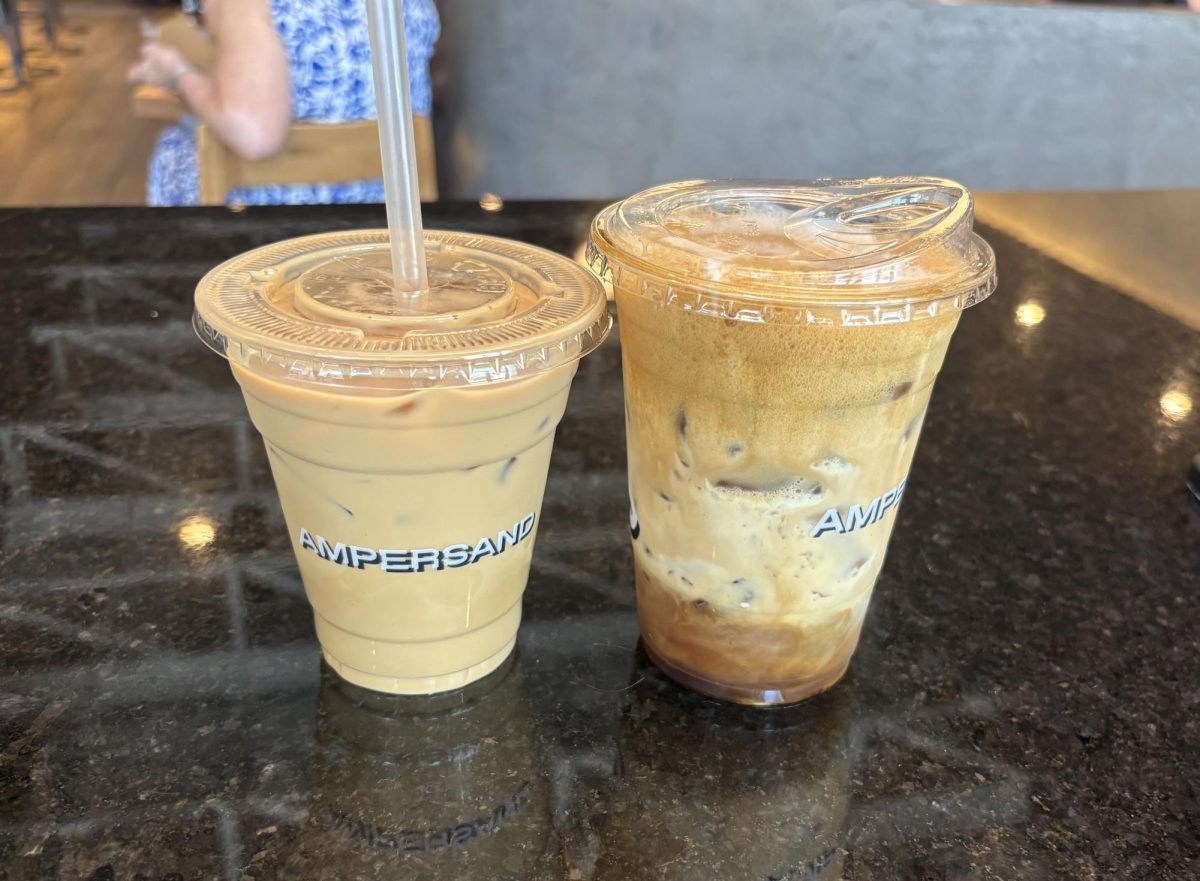This story was edited May 2, 2011 because the accuracy of a portion of the story was questioned by sources with first-hand knowledge of the events in the story.
A 5-foot-3-inch tall woman of 58 with short, salt-and-pepper hair stands on a small platform behind a tan leather barber chair. She reaches for each snip of her scissors as she sculpts the perfect burr cut on her customer’s hair.
She occasionally pulls out her clippers, which are adorned with miniature $100 bills, to make sure the edges are just right on the cut. She glances at the mirror behind her to check her work. The mirror is surrounded by family photos and a framed lace portrayal of her name, “Dallas.”
She flashes a toothy grin while she works, asking her customer about his recent travels. She greets each customer who enters Fox’s Barbershop, a long, narrow, five-barber-chair piece of the 109’s history located at 3028 Sandage Ave.
And then she pauses.
“Do you know what the barber pole represents?” she asks in her lively Texas twang, motioning to the perfectly polished red, white and blue contraption mounted on the wall.
“The white is for a bandage, the red is for blood and the blue is for veins,” she says, “And the bottom part is the cup of life.”
It’s the blood in Dallas Kirbie’s veins and the bandages she has used to cover her cuts that have kept her afloat since she started her career as a barber in 1982.
A self-described “blunt and straightforward” individual who is Fort Worth through-and-through, Kirbie is the first to admit she’s not the average woman. She said she hunts, fishes and takes pride in performing handy tasks, such as installing the hot water heaters used in the shop.
Because of the barbershop atmosphere, she said customers often forget she’s a woman and they’ll occasionally let a few choice words slip. But Kirbie’s not the type of person to let that pass.
“I don’t allow profanity in my shop,” she said. “I might be tough, but I’m still a woman.”
Kirbie didn’t always know she wanted to be a barber. She was a bookkeeper and secretary after graduating high school and worked in that field for 10 years.
“I was good at it and I made lots of money,” she said.
But she soon encountered her first cut on the way to becoming a barber.
“After doing it for so many years, I realized I was good at what I did, but I wasn’t happy,” she said. “I needed to be around people.”
At the same time, she was enduring a divorce and a shift in her family life, so Kirbie started to cut hair in her Crowley neighborhood.
“Next thing you know, I was cutting my friends’ husbands’ hair and then their boyfriends’,” she said.
Finally, she got her barber break at 7th Street Barber Shop as a shoe shiner at age 28.
From then on, she was sold.
She attended barber college and then apprenticed under Buddy Moore at 7th Street Barbershop after graduating in 1982 and eventually had her own chair there for nine years.
“I told (Moore), when I get out of (barber) college, I better have a job,” Kirbie said, in her typical fashion. “I have mouths to feed.”
After 7th Street, she moved to Westcliff Barber Shop, then to Crowley Road Barber Shop after she was in a car wreck—just another cut.
Finally, she found and purchased Fox’s. And she made it an extension of her own personality.
“I try to treat my clients as if I had to look at them every day,” she said. “You got to get to know them, you have to let them know that you’re grateful they came through your door.”
Her clients clearly appreciate Kirbie, as evidenced by dozens of autographed photos of country music brought to her by 96.3 KSCS radio host and customer Mark “Hawkeye” Louis.
Also, one of Kirbie’s customers who is a World War II veteran gave her a signed copy of a book he wrote about his war experiences. Another customer gave her a break on a framed commemorative photo of TCU’s Rose Bowl win.
Jeremy Soliz, who has worked at Fox’s for eight years, said Kirbie treats the other four barbers in the same manner she treats her customers.
He said she even gave him a nickname, Baby Boy, because he is by far the youngest and least experienced of the bunch.
“[Soliz] is an educator now,” Kirbie said, referring to his other occupation at a barber college and making sure it was clear that Soliz’s inexperience is not indicative of his skill.
Kirbie’s short hair seems stylish. It’s short and well shaped. Simple, yet “in.” But the story behind her short hair is anything but pleasant. In fact, it represents another cut she had to endure.
She encountered a rare form of stomach cancer called tubular villous adenomas recently. She chose to cut her hair because she wasn’t sure whether she would have to undergo chemotherapy. She missed three months of work, but her bonds with the barbershop remained.
“My boys took care of everything,” she said, referring to the four male barbers who work at the shop.
Kirbie also found support in the form of her 10-year-old adopted daughter, Ava, who decided cut her hair to her mom’s length.
Kirbie keeps a picture of her daughter with short hair next to her station to remind her of the sacrifice she made.
“She begged me to cut her hair off to match mine because I lost mine,” she said.
“That’s how long it was,” she said, pointing to the picture, “that’s how long it is now,” she said, pointing to another picture of her daughter today.
Throughout her life, Kirbie knew what it meant to work hard.
“Nobody said (life) was going to be easy,” she said. “You can have anything you want, you can be anything you want, you can do anything if you want it bad enough.”
Her great grandmother lived to be 104 years old, but she worked until the day she died, Kirbie said.
Kirbie’s father worked for the United States government, re-directing surplus funds to education and welfare. That’s where Kirbie said she got her patriotism.
Long story short, Kirbie wanted to work.
“I’ve had a job since I was 14,” she said.
She drove an 18-wheeler for her father when he broke his arm. She learned how to run a backhoe for him. She helped her him clean septic tanks. She roofed houses with her husband.
“I have a little bitty tiny bit of knowledge about a lot of things,” she said. “I grew up in an era (the 1950s) in which nothing was free. I’ve worked hard for everything I’ve got.”
And although Dallas Kirbie has encountered a cut or two here and there, she said, she’s just glad there’s blood running through her veins.
“You just have to find and look for the good in everything and everybody until they show you that they ain’t no good,” she said.



